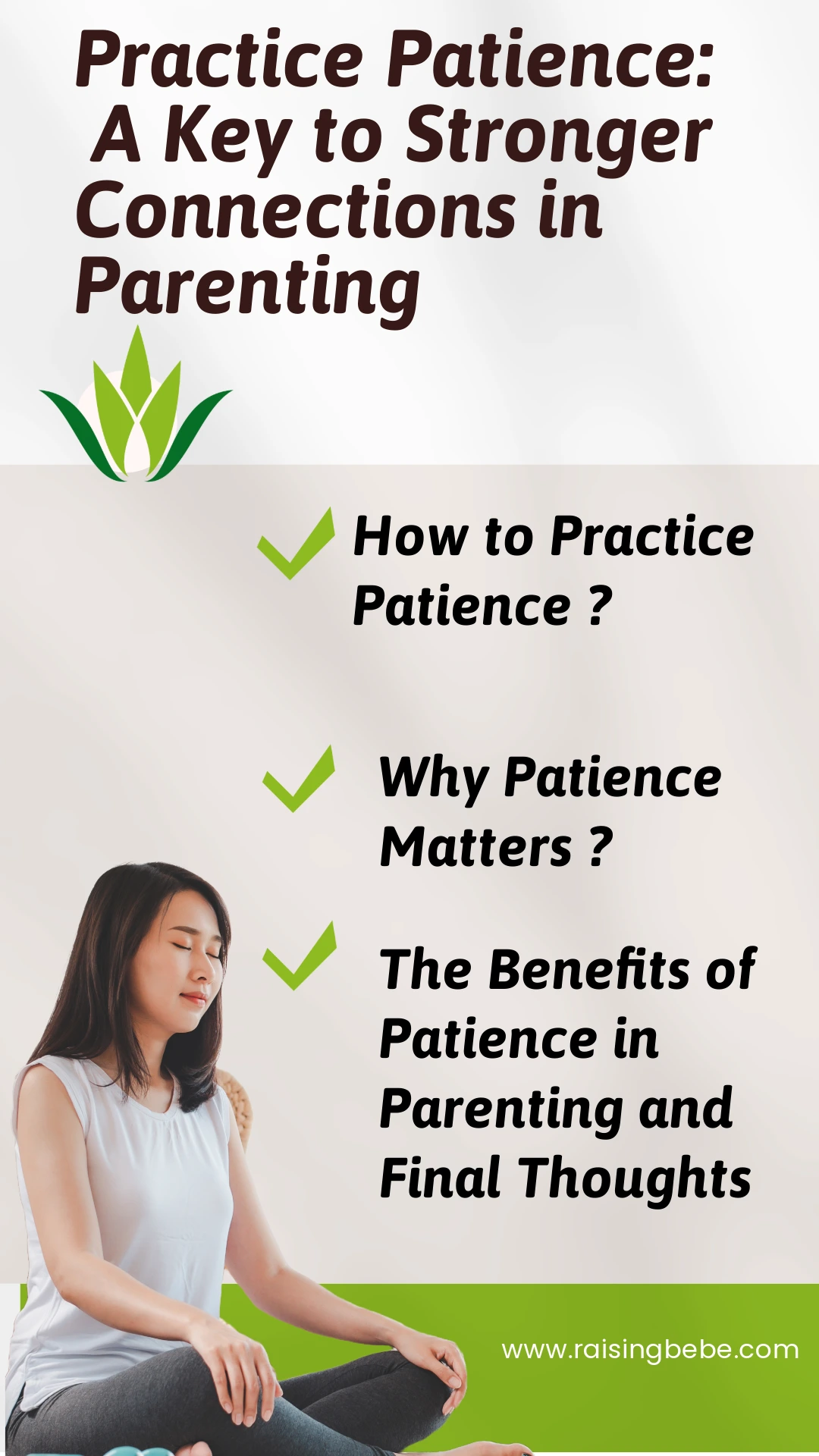Here’s your introduction revised to include the focus keyphrase “practice patience in parenting” naturally:
Parenting can be an incredible journey, but it also comes with its share of challenges. One of the most important skills to cultivate as a parent is to practice patience in parenting. Whether it’s dealing with a toddler’s tantrum or navigating a teenager’s mood swings, the ability to practice patience in parenting is your best tool for fostering a strong, healthy relationship with your child.
Why Patience Matters ?
Children are constantly learning, exploring, and testing boundaries. It’s a natural part of their development as they figure out how the world works and how they fit into it. During these times, it might feel as though your child is pushing your limits on purpose. However, it’s important to remember that they are simply learning and growing. When you practice patience, you create an environment where they feel safe to explore and learn from their mistakes.
How to Practice Patience ?
- Take Deep Breaths: In challenging moments, it’s easy to react impulsively. Before responding, pause and take a few deep breaths. This gives you time to calm down and approach the situation with a clearer, more measured response.
- Respond Calmly, Not Reactively: Children pick up on your tone and energy. Responding with calmness instead of reacting with frustration can help de-escalate tense situations. This not only teaches your child how to handle difficult emotions but also models how to maintain composure in stressful moments.
- Remember They Are Learning: Your child’s behavior may seem frustrating, but it’s likely a sign of their ongoing development. Whether they’re testing limits or trying to assert independence, these behaviors are part of learning to navigate the world. Viewing their actions through this lens can help you respond with understanding instead of frustration.
- Set Realistic Expectations: Children are not perfect, and they will make mistakes. Instead of expecting flawless behavior, acknowledge their effort and growth, even when they slip up. Offering grace for their missteps fosters a more positive, supportive environment.
- Build Stronger Connections: Patience isn’t just about keeping your cool—it’s about cultivating a deeper, more meaningful connection with your child. By responding thoughtfully and with empathy, you show your child that they can trust you during challenging times.
The Benefits of Patience in Parenting
When you practice patience, you’re not only improving your own emotional resilience but also strengthening your relationship with your child. Over time, this leads to better communication, deeper trust, and a more harmonious family dynamic. Patience allows you to focus on connection rather than correction, which helps your child feel valued, heard, and understood.
Final Thoughts
Parenting requires a lot of patience, especially when your child is testing boundaries. But by taking a step back, breathing, and responding calmly, you can navigate difficult situations with more ease. Patience builds the foundation for stronger, more positive connections with your child, leading to a healthier relationship and better growth for both of you.
So, the next time you find yourself feeling overwhelmed, remember: patience is not just a virtue—it’s a gift you give both to yourself and your child.

